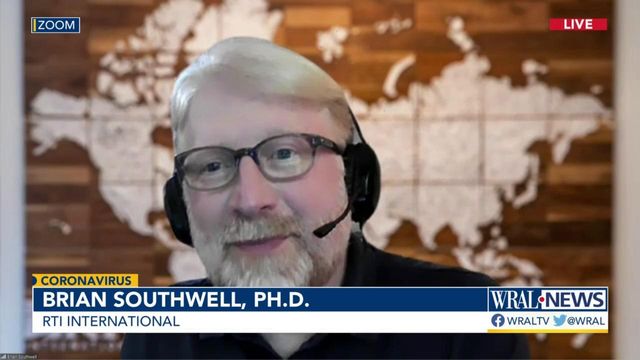Durham nursing facility achieves high vaccination rate for staff through education, easing fears
Forty-five percent of North Carolina's population is fully vaccinated against the coronavirus.
One of the first groups to begin receiving the vaccine was the state's elderly population and health care workers.
For staff and residents at Hillcrest Convalescent Center in Durham, that meant they were first in line to receive the vaccine.
"The vaccine was a lifeline," said Hillcrest CEO Ted Smith.
The majority of Hillcrest staff and residents were ready to roll up their sleeves to receive the shot, but not everyone.
"I think there were three or four [residents] in our facility in Durham that were hesitant about taking it, but every other resident said, 'Yeah, give it to me,'" added Smith.
Coronavirus vaccinations in NC
While the number of residents hesitant about the vaccine was low, Smith said medical professionals were quick to help try and ease any concerns about the vaccine.
"Even the medical director put a letter out to those folks and just said, 'Look, this is the way out of the pandemic and we recommend that you take it unless you have some serious contraindication," said Smith, adding that only one resident had a doctor say the vaccine was contraindicated for them.
"It was just a learning curve and a comfort ability acceptance factor," he added.
While the majority of residents were on board with getting the vaccine, Smith said the biggest opposition to the vaccine came from staff members.
"Initially, I noticed that the staff was much more hesitant ... just not actually embracing the vaccine as much as I thought they would," he explained.
Rumors, conspiracy theories and false information online possibly contributed to the unease about receiving the vaccine, according to Smith.
While it didn't happen overnight, and involved numerous one-on-one conversations, Hillcrest was able to get 95 percent of its staff vaccinated.
"We were beating the averages because we recognized pretty early on that, there was some number of people that were concerned about getting the vaccine at all," said Smith
Smith has suggestions for other nursing facilities struggling to get staff vaccinated.
"Put someone knowledgeable about clinical issues vaccines, if you have someone like that, and get them in a comfortable environment and answering questions, explaining facts and dispelling myths," he shared.
For those still wanting to wait to get the vaccine, Smith said everyone has a different reason.
"We walk a fine line between recommendations, and we don't want to coerce people to do something, but it boils down to individual concerns," he said. "People are making the decisions still and we certainly support their decision to get vaccinated."
Smith said helping educate unsure staff about getting the vaccine starts at the top of a company's leadership team.
"The 88 percent vaccination percent of your staff is just not acceptable ... get involved, educate folks, re-educate them again and again and hopefully, it will convince them that it's the right thing to do because it may save their life or the life of a loved one," he added.
Now, for residents at Hillcrest, life has started to return to a more normal state.
"Once that fear kind of died down and the vaccines became fully efficacy, it really almost felt like a semblance of normalcy again as we began to welcome visitors back," said Smith.
For now, as Delta variant concerns continue to rise and vaccination rates slow, Hillcrest is continuing to keep some COVID-19 restrictions in place. Visitors are still screened before entering, masks continue to be worn in the building and large gatherings aren't allowed.
"I think some things may never change and we're adapting," said Smith. "We're 18 months into this situation and so, I'm thankful for the normalcy that we have, even if it's not exactly like things were before. We'll keep evolving ... and just try to stay safe."










